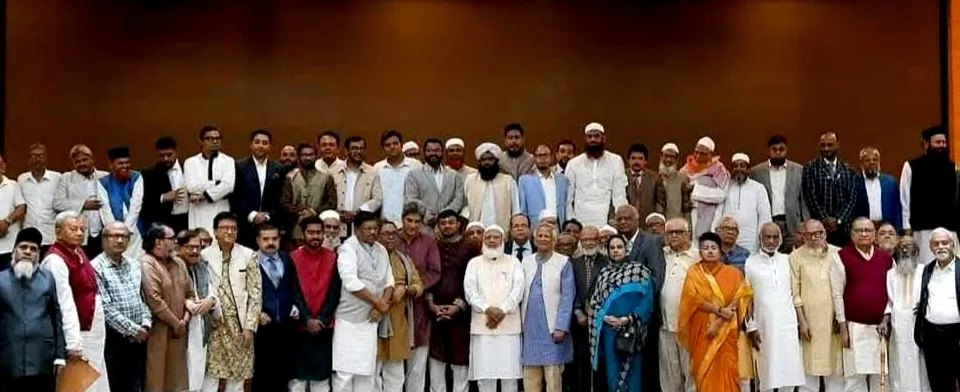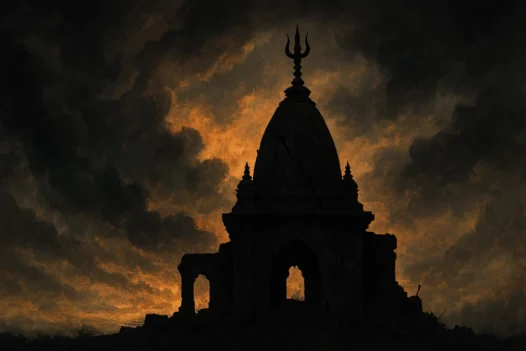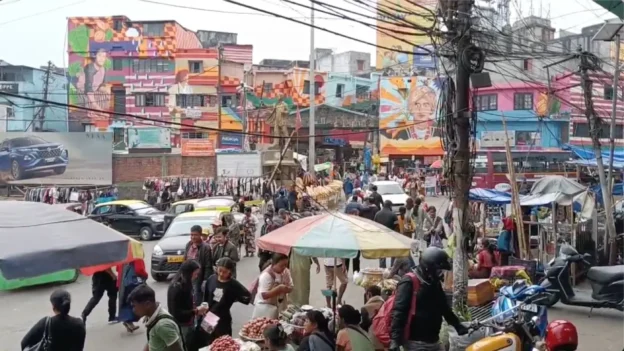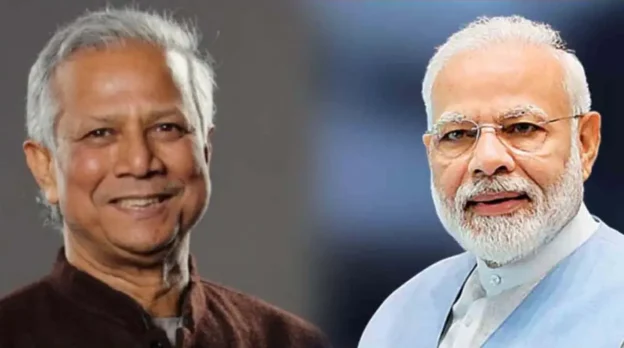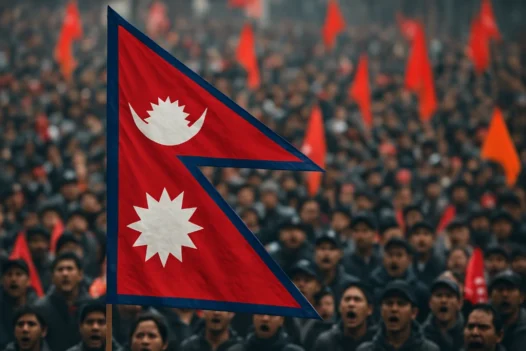By Sanjoy Kumar Barua
Bangladesh is not merely in turmoil—it is being systematically dismantled under the guise of governance.
The interim administration led by Dr. Muhammad Yunus has ushered in an era of escalating extremism, political persecution, and economic injustice.
What we are witnessing is not mismanagement but a meticulously designed agenda that is pushing the nation toward chaos.
The country is not merely facing political instability but an orchestrated assault on democracy, national security, and human rights.
In the wake of Sheikh Hasina’s departure, the interim government has begun reshaping the nation’s history.
This includes altering school textbooks to de-emphasize the role of Sheikh Mujibur Rahman, the country’s founding leader and Hasina’s father, in the 1971 liberation movement.
Such actions have sparked controversy and are viewed by many as attempts to distort the nation’s history.
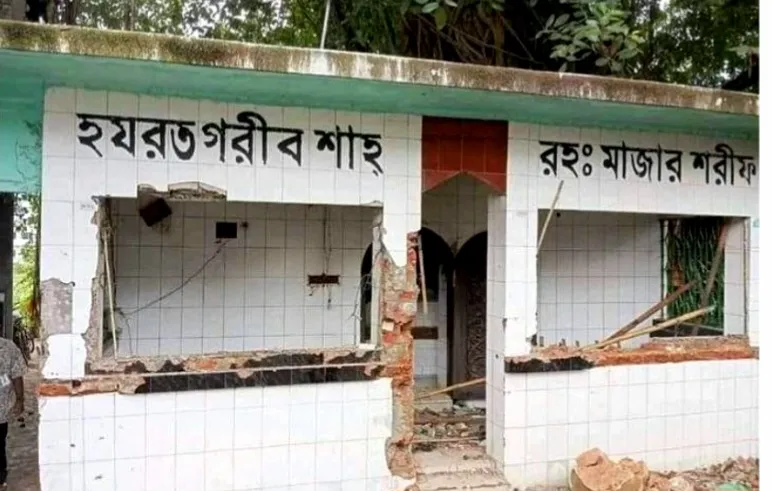
The unraveling of the state is not a mere coincidence—it is the outcome of a meticulously crafted plan, one that Dr. Yunus himself acknowledged earlier at the Clinton Global Initiative’s annual meeting, describing it as a well-orchestrated “design and conspiracy.”
This plan serves to empower extremists, embolden foreign interference, and erode the secular fabric of the nation.
Bangladesh has witnessed a shocking reality: convicted militants are walking free, ISI-backed rallies are held openly, and Pakistani ships are welcomed into our ports.
These are not mere events—they signal a new and alarming realignment that raises grave concerns about the country’s sovereignty.
The public display of ISI flags, coupled with the government’s silence and inaction, suggests a calculated move to appease foreign powers at the expense of Bangladesh’s independence.
The release of militants from jail has reinvigorated radical networks, strengthening extremist forces that seek to dismantle Bangladesh’s secular identity.
Around 700 inmates remained at large following mass jailbreaks during the student-led uprising, including at least 70 individuals—Islamic radicals and death row convicts—who escaped custody.
Instead of ensuring national security, the administration is opening the floodgates for militancy, chaos, and foreign influence.
Adding to the crisis is the targeted desecration of Bangabandhu’s statues—a brazen attack on the nation’s founding father and his ideals.
These arson attacks on historical monuments are not acts of random vandalism; they are deliberate provocations meant to distort history and destabilize the country.
The coordinated assault on Bangladesh’s identity is a direct attempt to erase the sacrifices of 1971 and usher in a new era of radicalism and pro-Pakistan sentiment.
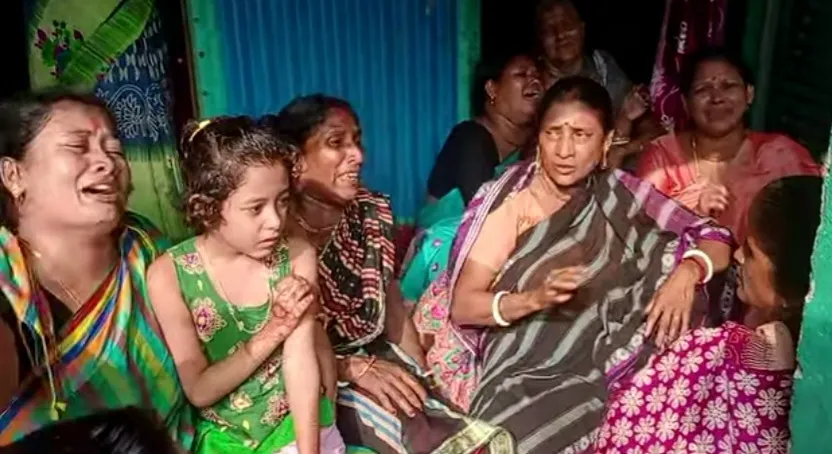
Under this regime, Bangladesh’s minorities and defenders of truth are subjected to relentless attack.
Hindus, Buddhists, Christians, and indigenous communities are facing a new wave of persecution, with temples, shrines, and homes burned in premeditated attacks.
Sufi shrines and mazars are being systematically destroyed in an attempt to erase Bangladesh’s pluralistic heritage.
Under the current leadership of Dr. Muhammad Yunus, Bangladesh’s cultural and spiritual identity faces severe threats, exemplified by the attack on the iconic Lalon Fair.
Such attacks are a direct assault on Bangladesh’s rich cultural heritage and spiritual freedom.
Journalists are harassed, attacked, and silenced, ensuring that the only discourse that survives is one dictated by those in power.
Teachers are humiliated and assaulted, signaling an alarming shift toward anti-intellectualism and repression of critical thought.
Women footballers are threatened, proving that gender equality itself is now under attack.
Bangladesh is descending into a tyranny where minorities live in fear.
The government is not just failing to protect its people—it is complicit in their oppression.
The government’s response to dissent is brutal and systematic.
Extrajudicial killings have surged, transforming the nation into a realm of brutal retribution.
Deaths in army custody have ceased to be anomilies—they are now routine, raising serious concerns about human rights violations by security forces.
The military, once the protector of national stability, is now used as a weapon to crush political opposition and silence critics.
This descent into state-sponsored violence is pushing Bangladesh to the brink of authoritarian collapse, where power is maintained through fear, intimidation, and bloodshed.
While ordinary Bangladeshis bear the burden of rising inflation, economic instability, and unemployment, the privileged, under Yunus’s influence, continues to thrive under state protection.

The Grameen Bank enjoys tax exemptions, while hardworking citizens struggle under crippling financial policies.
Bangladesh’s three key economic sectors—agriculture, industry, and services—have all suffered slowdowns, serving as a stark reminder for Dhaka of the deepening economic crisis. Chief among the mounting challenges is the relentless surge in inflation.
This is no longer about political differences—this is about the survival of Bangladesh as a sovereign, democratic nation.
The rise of extremism, the erosion of secularism, the persecution of minorities, and the collapse of the rule of law are not mere incidents; they are symptoms of a deeper conspiracy to dismantle the nation from within.
Bangladesh can no longer stay silent. The evidence is overwhelming—Dr. Md. Yunus’s leadership has pushed the nation into turmoil. His immediate removal is both urgent and indispensable for the country’s survival.
Source The Chittagong Hill Tracts

